Brussels’ humanitarian crisis: seeking asylum, being homeless – in the heart of the EU
In Belgium, the government is overwhelmed by the steady increase in asylum applications. Even recognized refugees slip into homelessness. Volunteers try to alleviate the suffering.
Temperatures hover around freezing point, nights in Brussels are wet and cold. A group of former Afghan soldiers is currently at the mercy of these conditions without any protection. They pitched camping tents on a bridge and stretched tarpaulins over them to at least drain off the rain. Four men are still sitting in one late at night, playing board games on a smartphone. But they are happy to come out again for a chat. They are obviously freezing in their thin jackets and sneakers. They show their Afghan identity papers and the substitute identity card neatly placed in a transparent sleeve with the dates of the asylum procedure.
Via Belarus to Belgium
They express surprise that anyone is paying attention to them. “Many journalists come to report. But no one listens to us,” reads one of the smartphones the group uses for the Pashto translation. They speak a smattering of English, hence they don’t always use their cell phones. They finally arrived in Belgium via Belarus across Europe, where they asked for protection after fleeing from the Taliban. “People say that there are human rights and respect for people here,” the four men say. That’s why they specifically chose Belgium. But they hadn’t noticed much of that until now. Since their arrival in August, they have been sleeping in tents, as the government does not provide accommodation. Only other Afghans supported them, they would help each other.
They know from a friend that the shared accommodation at the Petit Chateau – which is right next door – is almost empty. He was admitted there because he was still a minor. They don’t understand why the empty beds can’t be occupied by other people, at least temporarily.
ECtHR reprimands Belgian government
This group of Afghans is not alone in this situation. According to reports, around 4,000 refugees in Belgium currently have no place to stay. Court judgments in 7,000 cases and two judgments by the European Court of Human Rights (ECtHR) did not change anything so far. Even the actually prescribedfines, in case the court rulings are not followed, are missing, says lawyer Marie Doutrepont, who together with her colleagues expresses the political voice of the refugees. On request, the State Secretariat for Asylum and Migration is aware of international obligations and, according to its own statements, is trying to provide emergency accommodation. “But given the highinflux of refugees we are hitting our operational limits” says Sieghild Lacoere and defends her office against the criticism that the government is ignoring the verdicts: “The stateisconstantly working on reception facilities next to working on decreasing the numbers ofincoming asylum seekers.” Because only 40 percent received a protection status. “60 percent travel for economic reasons,” she says in general terms; which is hardly tenable with 2,500 rejected applications from Afghans alone out of a total of 10,500.
More and more asylum applications in Belgium
In fact, Belgium has been faced with a significant increase in asylum applications for several months. Around 26,000 applications in the previous year are compared to almost 31,000 applications by the end of October alone. With more than 5,200 people, Afghanistan is by far the largest country of origin, followed by Syria (2900), Palestine (2300) and Burundi (2150); the approximately 60,000 Ukrainians receive a special status similar to that in Germany. In September and October, the number of asylum applications reached more than 4000 for the first time – in the first half of 2021 it was consistently less than 2000 months.

Volunteers alleviate hardship in Brussels
A consequence of this is not just an overwhelmed state and homelessness. Long queues of people who want to apply for asylum or who have an appointment for an interview also form in front of a branch office of the migration authority, where asylum seekers are registered. You wait in the cold for hours. When volunteers of “Serve the City” distribute sandwiches, tea and coffee at the solidarity breakfast on Mondays and Tuesdays, there are up to 500 people here, Mercedes Navarro says at a meeting at the end of November: “Today it’s a bit quieter than normal, maybe there are 250 people.” After all, the number of volunteers has also grown as a result of the situation.
Another volunteer shows the situation at the front of the queue. There are always tense situations here, as men traveling alone have to wait longer than average, while families are simply waved through. The separation is understandable in principle, but the way the security guards treat those waiting is aggressive for no reason. This also becomes clear in the background during the conversation.
These organizations help refugees in Brussels
With the start of the Russian attack on Ukraine, more and more asylum seekers from other countries arrived in Brussels. Navarro has no explanation for the sudden increase. “A lot of people we talk to just say they’ve heard that Belgium is a good place,” she says. Some see an advantage in the French official language, others actually want to go to Great Britain and are stuck here. Navarro is volunteering with the NGO before going to work; her company has a partnership with Serve the City.
To see such conditions in your city is heartbreaking.
“In this cold knowing that it’s not just one day, but this one and another and another… They don’t have proper meals or maybe just every now and then. They have no place to shower. I mean the basic things you take for granted.”
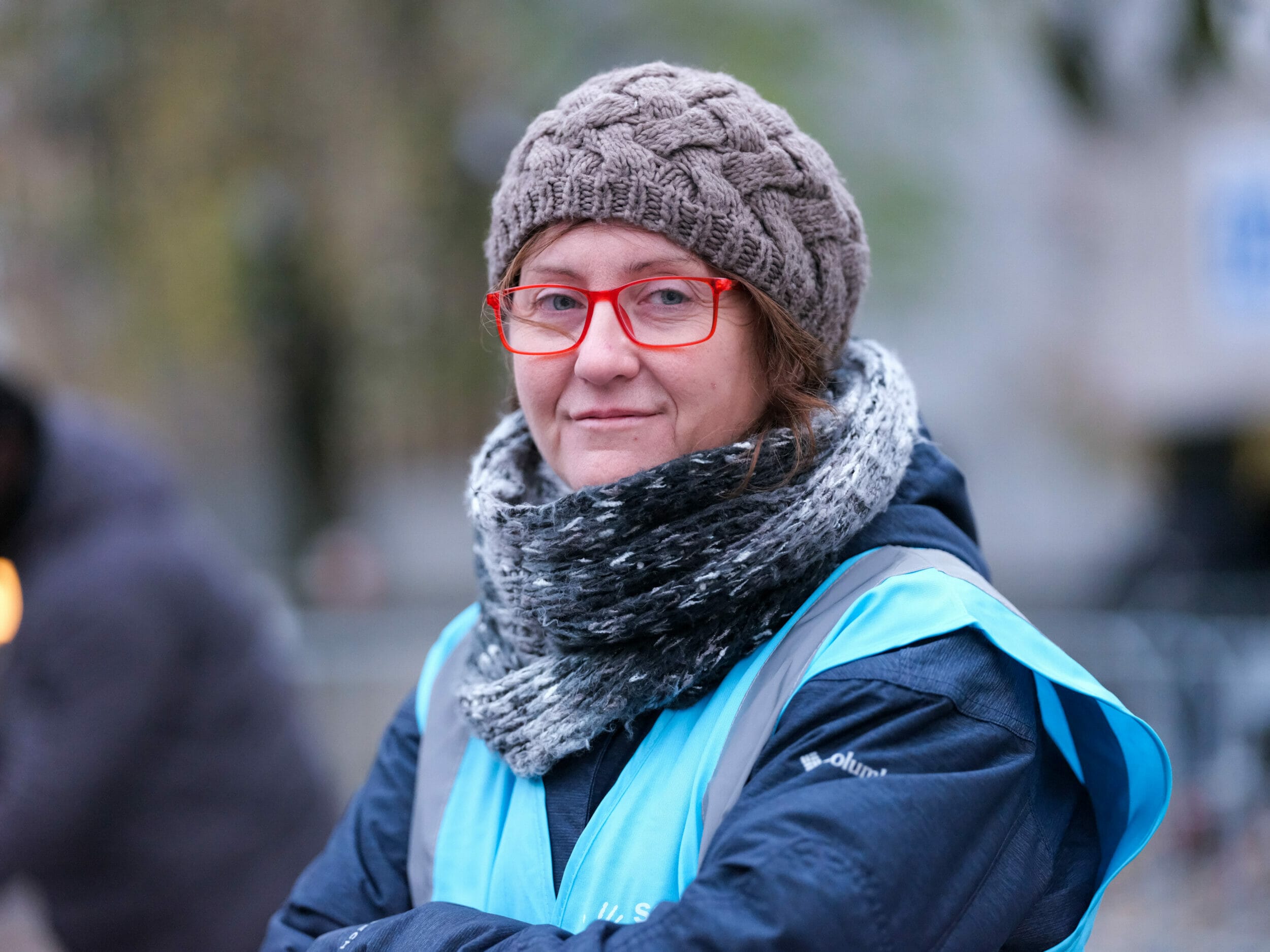
Volunteer with Serve the City’s Solidarity Breakfast in Brussels
She could only try to help a bit. However, the government is required to act here.
Belgium demands fair distribution
The State Secretariat, in turn, refers to the “extraordinary circumstances” with a lack of staff, a lack of buildings for further accommodation and local authorities, which are reluctant to provide additional capacities in view of the reception of refugees from Ukraine. Therefore, the European Union is now required. “If Belgium receives 1,000 applicants per week and Slovakia receives 17, even though the country has the same population, 17 is not very much…,” says Lacoere.
As a “non-political organization”, Serve the City is reluctant to make such statements, says Executive Director Nathan Torrini. In conversation, he is shocked by the conditions on the streets of the Belgian capital: “It’s a hidden humanitarian crisis, but it’s there.” The solidarity breakfast was actually intended as a gesture for a welcoming atmosphere in front of the migration authorities and suddenly became a humanitarian project. Also at the “Lunch 4 All” project, around 4,000 instead of the previous 1,800 meals per week are now being distributed almost exclusively to refugees, so the organization also gets to its limits. Without a place to stay, food and work permits, people would find themselves in a desperate situation. Torrini refers to the ECtHR judgments and more than 2000 similar ones from Brussels courts alone:
The fact is that the Belgian government does not follow the international rules. That is its responsibility.
However, it was mainly other organizations that were still fighting to prevent families and minors from ending up on the streets. “It’s not normal here that the pressure is put on NGOs,” says Torrini. What is needed now in view of the onset of winter are quick solutions
“Everyone here is sick. They have no money, no shoes,” one of the Afghans in front of the tents confirming Torrini’s assessment. Without a work permit, they would also have no opportunity to buy food or improve their situation on their own, adds another.
Protest in front of the Department of Justice
On December 1st, demonstrators want to symbolically bury the rule of law because of what they see as the ignorant attitude of the authorities towards the court rulings. The farewell ceremony will take place at 12:30 p.m. in front of the Office of the Minister of Justice: 50 Boulevard de Botanique, near the Botanique metro station. Participants are asked to bring flowers and condolences and to wear black.
Vorgeschlagene Beiträge
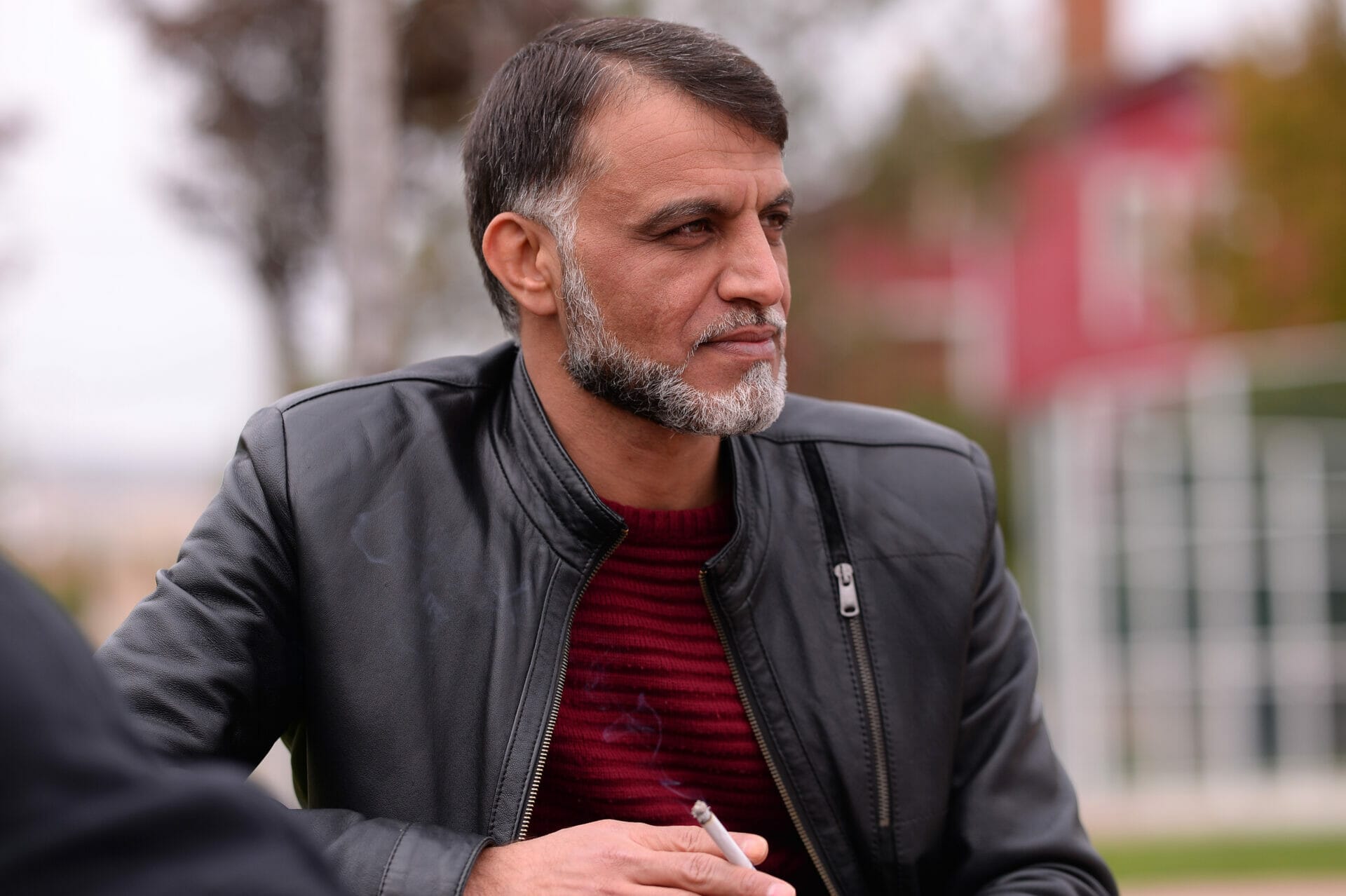
Fighting Windmills: Anas al Mustafa and the Turkish State
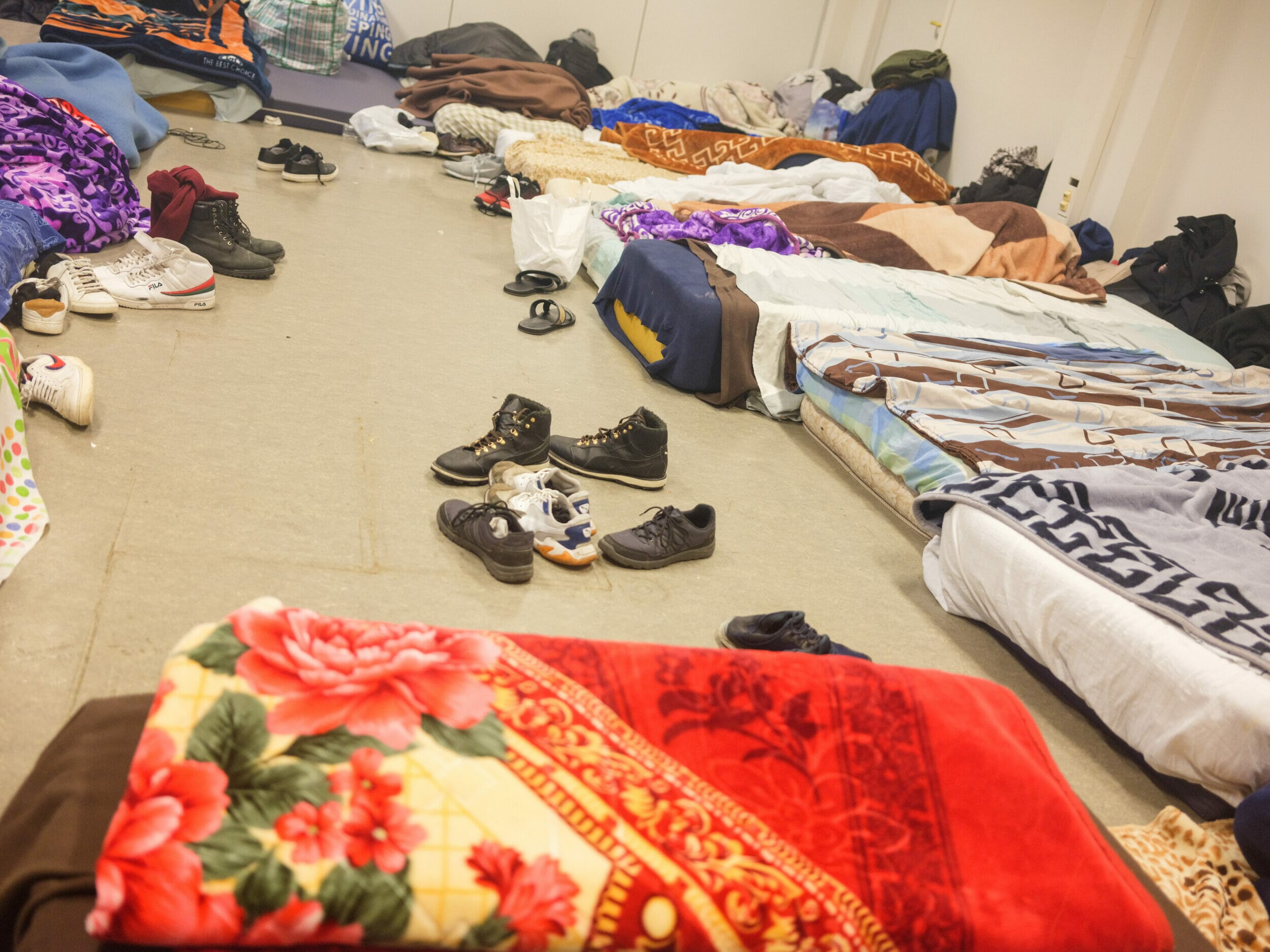
700 refugees occupy building in Brussels
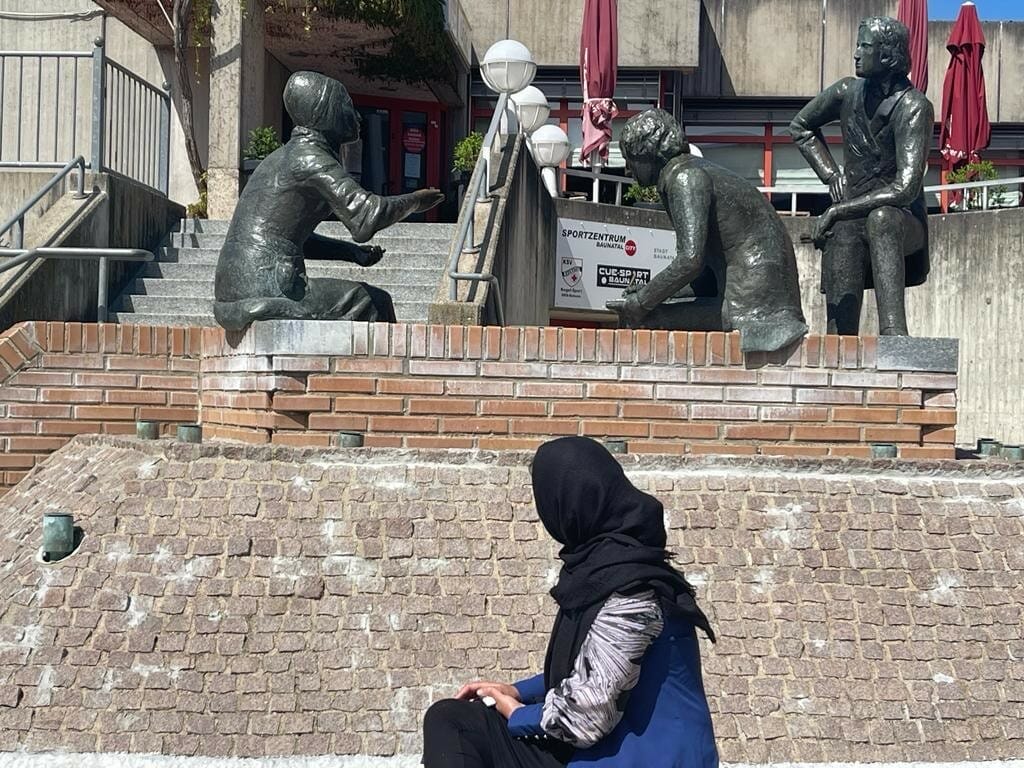

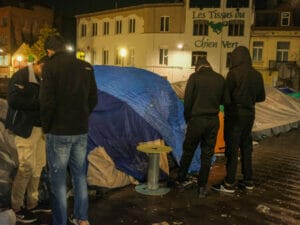

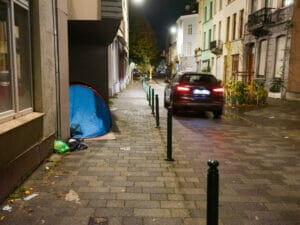


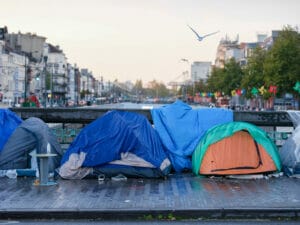


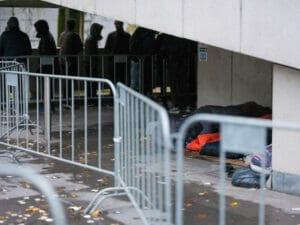

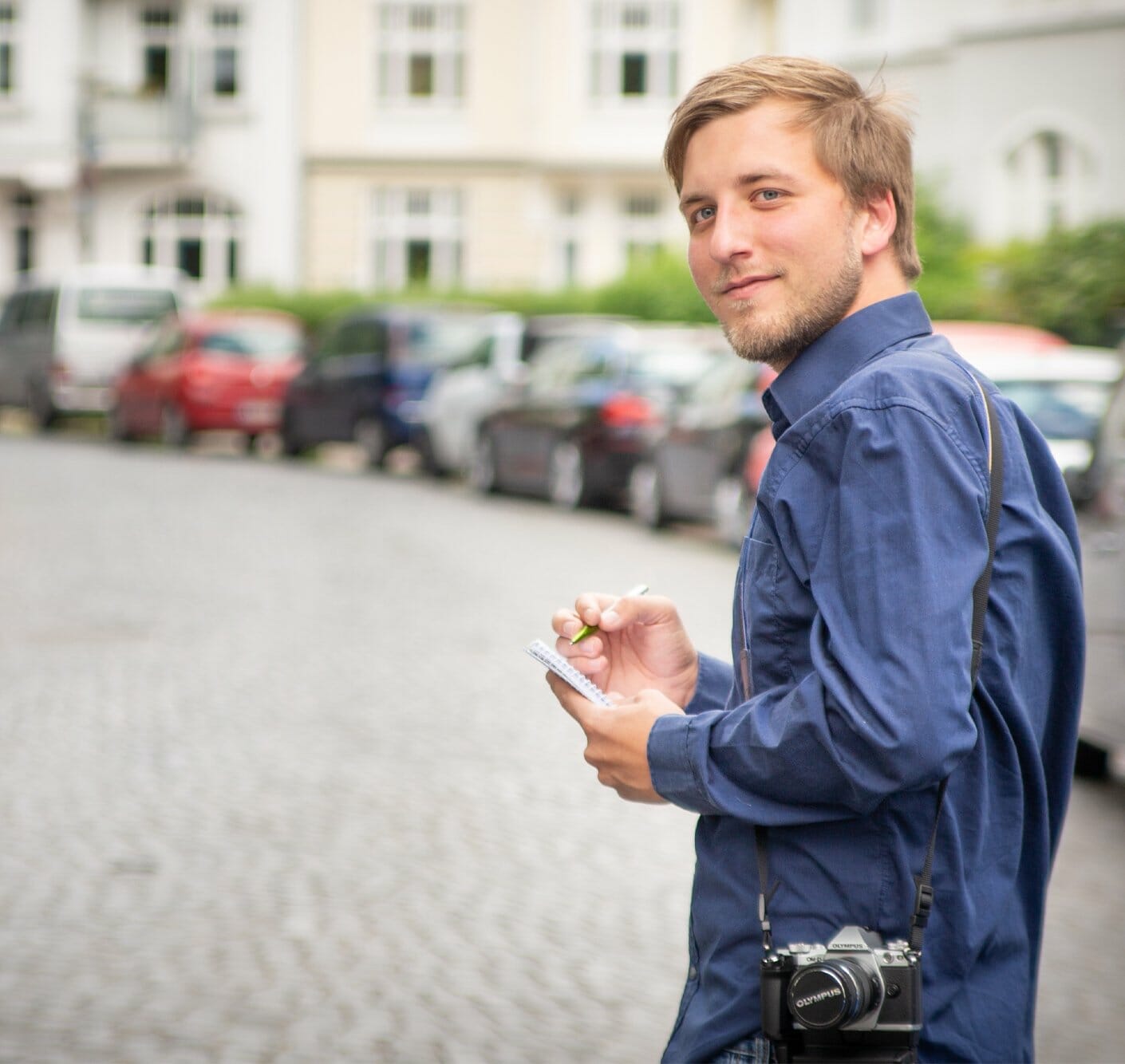
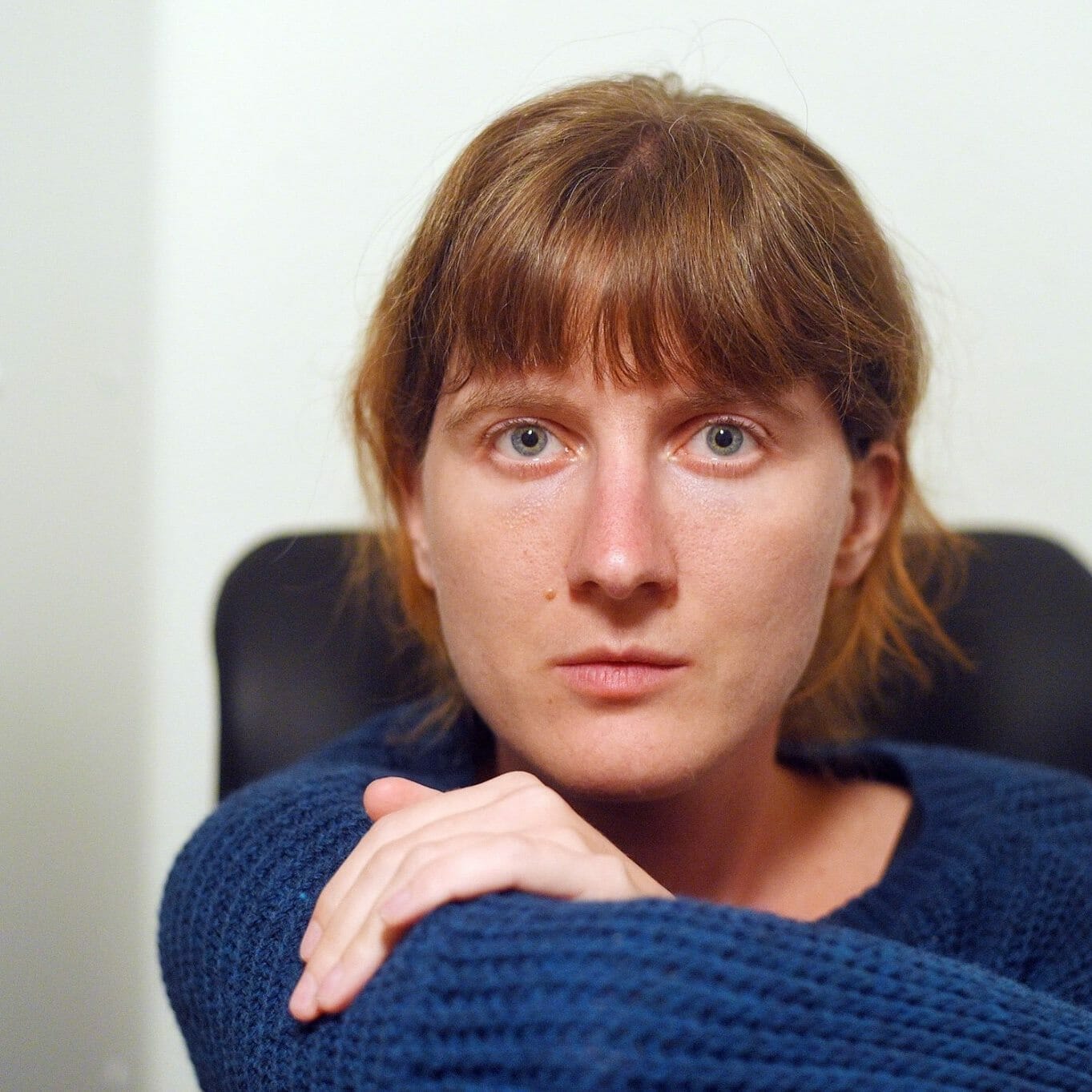
Leave a Reply
You must be logged in to post a comment.